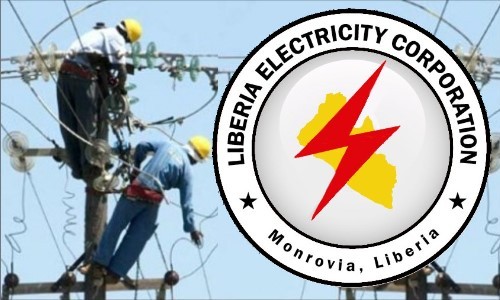The Liberia Electricity Corporation (LEC) is currently in a precarious financial situation, prompting management to negotiate a 50-megawatt electric power supply from Ghana and an additional 20 megawatts from Guinea. This urgent need for additional power sources highlights the company’s ongoing challenges, including a troubling creditworthiness status due to an outstanding debt portfolio exceeding US$19.6 million owed to the Ivory Coast’s Compagnie Ivoirienne d’Électricité (CIE). This debt not only signifies LEC’s precarious financial health but raises pertinent questions about its management practices. The arrears are attributed to the government’s indebtedness to LEC, along with high operational costs and mismanagement within the corporation.
As of June 2024, the significant debt owed to CIE has led to alarming actions, including a warning from Ivorian authorities threatening to cut off electricity supply if payments remain unsettled. This warning is a part of a wider concern regarding the strain on CIE and its financial viability, particularly as it grapples with increasing electricity generation costs. LEC’s situation is further compounded by its failure to honor a previously agreed-upon payment plan, leading CIE to express frustration over the lack of compliance and materially worsening the relationship between the two entities. The stalled payments underscore LEC’s difficulties in maintaining financial credibility and operational stability.
Given the urgency of the situation, critical questions arise about the feasibility of LEC’s strategy to source power from Ghana and Guinea when its immediate obligation to CIE remains unmet. Experts suggest that rather than seeking external power supplies, LEC should prioritize its financial obligations to ensure a reliable electricity supply. The ongoing negotiations for additional power raise concerns regarding whether future suppliers would be willing to extend credit to LEC, especially considering its poor payment record and substantial existing debts. The need for strategic change is further emphasized, as the current mismanagement and high salaries within LEC compound the financial challenges faced by the corporation.
The broader context of power supply in the region indicates that LEC is not alone in its struggles. Ghana, currently negotiating with LEC for additional power supplies, faces its own financial difficulties, having accrued debts of up to $1 billion to power producers. Debates around the accurate amount of this debt highlight the complexities within Ghana’s electricity sector, revealing a troubled balance sheet that might hinder its ability to assist LEC effectively. Furthermore, Ghana’s loss of up to 10% of its total electricity generation capacity, coupled with uneven access to power, presents a glaring challenge that would likely limit any substantial support it could offer to LEC.
Comparatively, the electricity access rates in Liberia are alarming, with reports indicating that less than 2% of its population has access to electricity, and only about 7% in urban areas like Monrovia. This stark contrast to Ghana’s situation, where rural poor households often rely on alternative energy sources such as biomass, paints a grim picture of the energy crisis in Liberia. The limited access to reliable electricity has profound implications on socio-economic growth and development, raising pressing questions about the effectiveness of strategies employed by LEC in tackling these systemic issues.
To address the challenges facing LEC and the broader electricity crisis in Liberia, experts advocate for significant reforms, including the depoliticization and potential privatization of the corporation. Transforming LEC into a more efficient business entity focused on sustainable operational management could lead to improved performance and creditworthiness. Without decisive action to rectify its management issues and financial obligations, LEC may struggle to secure necessary power contracts from regional partners like Ghana and Guinea. The pressing need for reform is critical not only for the strength of LEC but also for the future electricity accessibility and economic resilience of Liberia.














